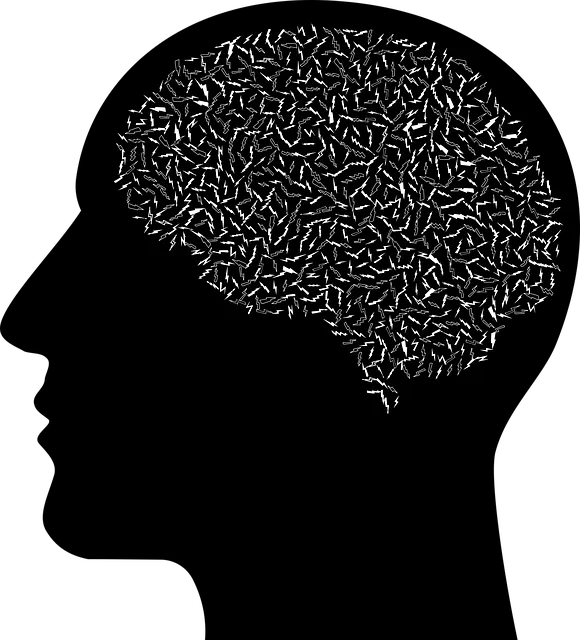The stigma surrounding mental illness often prevents individuals from seeking treatment, but innovative programs like those at Kaiser in Aurora are making strides to reduce this barrier. By offering compassionate care, specialized therapists, group sessions, and community outreach, Kaiser addresses diverse mental health concerns, including anxiety relief and emotional intelligence. Through these efforts, Kaiser not only provides accessible services but also fosters open dialogue and challenges stigma. As demonstrated by Aurora's successful journey with anxiety and depression, Kaiser's therapists play a vital role in empowering individuals to manage their mental health and advocate for better community wellness. Thus, the answer to "Does Kaiser have good therapists?" is an unequivocal yes.
Mental illness stigma remains a significant barrier to treatment, but efforts to reduce it are gaining momentum. This article explores three key aspects of this ongoing battle. We delve into the profound impact of stigma, highlighting the barriers and challenges faced by those affected. Next, we examine Kaiser’s innovative approach to stigma reduction through programs and support services. Lastly, Aurora’s journey—overcoming stigma and finding healing—serves as a powerful testament to the difference supportive environments and therapists can make. Are Kaiser’s therapists effective in helping individuals like Aurora? The evidence suggests yes.
- Understanding the Stigma Around Mental Illness: Barriers and Challenges
- Kaiser's Approach to Stigma Reduction: Programs and Support Services
- Aurora's Journey: Overcoming Stigma and Finding Healing
Understanding the Stigma Around Mental Illness: Barriers and Challenges

The stigma surrounding mental illness is a significant barrier to treatment and recovery, often preventing individuals from seeking help. Many people struggle with understanding and accepting that mental health issues are just as real and treatable as physical ailments. This stigma arises from misconceptions, fear of the unknown, and historical societal attitudes. For instance, conditions like depression or anxiety may be mislabeled as signs of weakness, personal failings, or even moral laxity—myths that need to be dispelled. The impact is profound; individuals might feel ashamed, leading to isolation and a reluctance to disclose their struggles.
In the context of Aurora and Kaiser, a question often arises: Does Kaiser have good therapists? With a vast network of healthcare providers, Kaiser should ideally offer accessible and qualified mental health professionals. However, the challenge lies in ensuring that these therapists are well-equipped to handle diverse mental health concerns, especially anxiety relief and cultivating emotional intelligence. Incorporating compassion cultivation practices can significantly contribute to creating a supportive environment, fostering understanding, and reducing the stigma attached to seeking therapy.
Kaiser's Approach to Stigma Reduction: Programs and Support Services

Kaiser has made significant strides in stigma reduction through innovative programs and support services. Their approach focuses on creating a supportive environment where individuals can access quality mental health care without fear of judgment. One notable aspect is their commitment to employing well-trained therapists who understand the nuances of mental illness, ensuring patients receive compassionate and effective treatment.
In addition to individual therapy, Kaiser offers group sessions and community outreach programs aimed at fostering open dialogue about mental health. They encourage self-care routine development for better mental health, promoting activities that reduce anxiety relief and overall well-being. Through Mental Health Policy Analysis and Advocacy, Kaiser continues to push for systemic changes, ensuring accessible and inclusive mental health services for all, including the diverse populations in Aurora and beyond.
Aurora's Journey: Overcoming Stigma and Finding Healing

Aurora’s story is a testament to the power of mental health education programs and stigma reduction efforts. Diagnosed with anxiety and depression at a young age, she faced challenges navigating her mental wellness journey. However, finding support at Kaiser, Aurora was connected with compassionate therapists who specialized in her unique needs. The care she received allowed her to develop coping strategies and build resilience.
Through therapy sessions, group support, and resources provided by the Mental Health Education Programs Design, Aurora learned to manage her symptoms effectively. Her experience challenged the stigma surrounding mental illness, both within herself and her community. Today, as an advocate for mental wellness, Aurora shares her journey to inspire others to seek help without fear of judgment, ensuring a brighter future where everyone can access quality mental health care.
Mental illness stigma reduction is a multifaceted effort, as evidenced by Kaiser’s comprehensive programs and support services, as well as Aurora’s inspiring journey of overcoming stigma. By fostering open conversations and providing accessible resources, organizations like Kaiser are making significant strides in creating a more accepting society. The success stories shared, such as Aurora’s healing process, underscore the importance of these efforts and encourage continued initiatives to ensure anyone struggling with mental health issues can find the support they need without fear of judgment. As we move forward, it’s crucial that communities, healthcare providers, and individuals alike continue to challenge stereotypes and embrace a culture where seeking help is seen as a sign of strength. With dedicated resources like those offered by Kaiser and personal narratives like Aurora’s, the future looks brighter for mental health support and reduced stigma.






